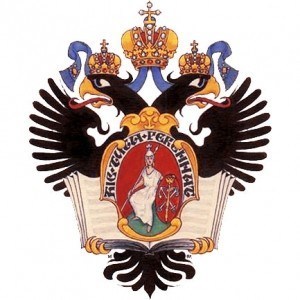Photos of university / #radboud_uni
Focusing on the interface of theories of the good society, globalisation, legitimacy and power.
Political theory is the soul of political science: it’s not about determining what the facts are but about determining what they mean and what should be done with them. It’s about the genuine and the deceptive arguments used to interfere in other people’s lives and business. We need political theory anywhere where power is used both covertly and openly, where policies are made and where choices are questioned and criticised.
As a political theorist, you will ask what would be sensible instead of what people call sensible. Just a handful of questions you will be asking and seeking the answers to: Is there a moral foundation for national sovereignty or self-determination? How far should tolerance go? What can and should be our ambitions for local community building? When does a political theory become a weapon or a form of power? Can authority ever be legitimate? Do we owe anything to future generations, animals, the global poor or minority groups?
This Master’s specialisation offers students an unprecedented opportunity to learn to assess political values, aspirations and dreams in terms of their desirability and reasonability. You will also discover how political theoretical work can be introduced fruitfully in other relevant contexts. This will enable you to help civil initiatives and governmental institutions, not to mention the public at large by imagining and designing policies and ambitions that are both viable and defensible.
The Master’s specialisation in Political Theory is taught at the Nijmegen School of Management. It has a course load of 60 EC* (one-year). All the courses are 6 EC and the Master’s Thesis is 18 EC. The structure is as follows:
Semester 1
- Power in Political Theory (6 EC)
- Sociology, Philosophy and Ethics of Research (6 EC)
- Contemporary debates in Political Theory (6 EC)
- Advanced Research Methods (6 EC)
- Recognition, Redistribution and Citizenship (6 EC)
Semester 2
- Deliberative Democracy or Just War Theory (6 EC)
- Elective or internship (6 EC)
- Master's Thesis (18 EC)
A completed Bachelor's degree in Political Science or a related discipline from a recognised, academic university.
A substantial part of the courses in your Bachelor’s degree should be in your preferred specialisation: International Relations, Political Theory, Comparative Politics or Public Administration (COMPASS).
Competency in Social Science Research Methodology (quantitative and qualitative)
Due to the strong academic nature of this programme, it is essential that students have the necessary basic research skills. Applicants with little or no Social Science Research Methodology in their previous education may get admission, provided they first complete an (oral) examination in research methodology. The oral exam can be held in person in Nijmegen or via Skype.
A proficiency in English
In order to take part in this programme, you need to have fluency in both written and spoken English.This requirement has been satisfied when the student meets one of the following conditions:
- Has successfully completed a three-year Bachelor's programme at a Dutch university.
- Is a citizen of Australia, Canada (with exception of Quebec), Ireland, New Zealand, United Kingdom, or the United States of America.
- Has successfully completed a Bachelor's programme that was taught completely in the English language in one of the following countries: EU/EEA-countries, Australia, Canada, New Zealand, United States of America.
- Has successfully completed a Master's programme from a Dutch university of applied sciences (HBO).
All other students need one of the following certificates (TOEFL and IELTS certificates may not be older than two years):
- A TOEFL score of ≥90, with subscores not lower than 18
- A IELTS score of ≥6.5, with subscores not lower than 6.0
- Cambridge Certificate of Advanced English (CAE) or Certificate of Proficiency in English (CPE) with a mark of C or higher
There are various scholarships available for studying at Radboud University. Some of the opportunities are described below. A full list, including detailed information, can be found on our scholarships and grants page at our website.
Radboud Scholarship Programme
Open to a select number of excellent international students. Instead of the institutional tuition fees, non-EEA students pay the legal tuition fees (€2,006 in 2017/2018). Visa and residence permit costs, liability insurance and health insurance are also covered.
Orange Tulip Scholarship
Open to students from Brazil, Mexico, Russia, Indonesia, South-Korea, Vietnam, Thailand, and China. Instead of the institutional tuition fees, non-EEA students pay the legal tuition fees (€2,006 in 2017/2018). Visa and residence permit costs, liability insurance and health insurance are also covered.
Fulbright-Radboud Scholarships
Open to excellent American students. The grant will be paid in 12 monthly instalments of 1,050 euros. International travel and the cost of the residence permit will be covered, and an extra allowance of €1150 will be paid on arrival.
Sino-Dutch Bilateral Exchange Scholarship
Open to excellent students from China. Consists of a contribution of € 16,113 towards the total costs of one year of study or research in the Netherlands.
DIKTI-Neso Scholarships
Aimed at lecturers at higher education institutions in Indonesia who wish to pursue a PhD or Master's at a university in the Netherlands. A DIKTI scholarship includes allowances for living expenses, insurance, travel costs, tuition fees and more.
Indonesian Education Scholarship (LPDP)
Open to excellent Indonesian students under the age of 35. Involves a full scholarship.
Holland Scholarship Programme
Open to excellent students from Canada, America, India and Turkey. Scholarship consists of 5,000 euros payed at the start of study.
Dutch Student Finance
EU/EEA students and Swiss students under 30 years of age are eligible if they are working at least 56 hours per month in the Netherlands, or have been living in the Netherlands for five years or more. Dutch student finance consists of four components: a basic grant, a supplementary grant (depending on the parental income), a student travel product, and a loan.









